Learning Effectively
Introduction
Study is a part of life for anyone who goes to school or college and every
person studies in different ways to some degree or the other. Webster’s New
World Dictionary defines ‘study’ as the following: “the act or process of
applying the mind so as to acquire knowledge or understanding, as by reading,
investigating, etc., or careful attention to, and critical examination and
investigation of, any subject, event, etc.”
This definition makes it clear that study is an intellectual activity involving
the application of our minds for the purpose of gaining knowledge or
understanding. Even in Christian life it is very critical, because it is a
discipline that strengthens the mind and enriches the soul. Strengthening the
mind is very important, because we are to serve the Lord, our God with all our
hearts, with all our souls and with all our minds (Matt.22: 37-38).
Our minds have a central place in our spiritual lives. Romans 12: 2 teaches
that we need to be transformed by the renewing of our minds and that without
this renewal we cannot know God’s will. Without the knowledge of God’s will we
won’t be able to live lives that are pleasing to God. Moreover, we are to love
God with our minds, because He created us as rational beings in His own image
and likeness and intellectual growth is an integral part of spiritual growth.
That is what we learn from the life of our Lord Jesus Christ (Luke 2:46-47
& 52) and the lives of Daniel and his friends (Daniel 1:4 & 17).
We generally study for the sake of some immediate end like preparing a talk or
preaching a sermon or leading a Bible study or learning a topic covered in the
book or for some examination. There is nothing wrong in doing so. But we should
also approach study as a set of training activities, as spiritual and intellectual
exercises. Some times we should study a book (especially one that is
challenging) for the sheer value of engaging our intellects in a stretching and
strenuous activity, which leads to an increased capacity to understand.
Moreland says, “Seen as a discipline, study becomes a means of building my
character, ingraining habits of thought and reflection, and reinforcing in my
own soul the value of the life of the mind.” Thus, if we study regularly
and make study a repetitive exercise we will grow intellectually and we can
love and serve the Lord better with our minds also. Some one said, “If you are
not busy growing you are busy dying.” Study is an important factor that
contributes to our growth. Therefore, we as Christians should cultivate the
habit of studying in order for us to keep growing. Otherwise, we will be
decaying and dying in some sense and some ways.
So both from the general perspective and from the Christian perspective study
is a very important discipline and all of us study. But the question is ‘how
effective are we in our study or are our study methods effective?’ We cannot be
effective in our study unless we are effective in our reading, because reading
is an integral (and in some ways the most important) part of study.
Hence in the process of cultivating the habit of studying well we need to learn
how to read well, ‘the art of reading’. Reading can be classified in different
ways based on different criteria. We will look first at these different kinds
of reading and then at some of the best study methods that will give us the
needed advantage in this competitive world where we are all caught in a rat
race whether we like it or not and whether we know it or not.

Types of Reading
Reading is a very active process and a very complex activity just as writing
is. Adler and Van Doren say that the art of reading is the skill of catching
every kind of communication as well as possible and that the amount of the
communicated stuff a reader ‘catches’ generally depends on the amount of
activity she or he puts into the process and upon the skill with which she or
he executes the different mental acts involved.
Reading for information and reading for understanding are two basic kinds of
reading. Also there are reading for entertainment and reading for
enlightenment. Reading for understanding or comprehending and enlightenment is
for the purpose of ‘learning’, which means understanding more and not just
remembering more information. We should be reading not just for improving our
information, but we should read for improving our understanding or increased
comprehension. This kind of reading is much more challenging and demanding than
the reading for entertainment. Being informed is a prerequisite to being
enlightened. So we cannot completely neglect ‘reading for increasing
information’, but we should never stop at being informed or satisfy ourselves
with increased information.
Reading is also classified on the basis of the levels of reading and there are
four levels. Levels are slightly different from kinds, because kinds are
distinct from one another, whereas levels are cumulative and they progress
gradually and the higher levels include the lower levels. The four levels are:
1) Elementary Reading, which is also called rudimentary or basic or initial
reading. This is what we learn at the elementary school level and the basic
question asked of the reader at this level is “What does the sentence say?”
Because of the deficiencies in the instruction we received in reading at the
elementary school level, all of us continue to experience difficulties or
problems of this level of reading.
Most of these difficulties are mechanical and we cannot read faster unless we
overcome these difficulties and hence most of the speed-reading courses focus
on this level. 2) Inspectional Reading, which is also called ‘skimming’ or
‘pre-reading’ where the focus is on time or on getting most out of a book
within a given (generally short) time. So inspectional reading is the art of
skimming systematically. The question asked at this level is “What is the book
about? Or What is the structure of the book? Or What are the parts of the
book?” Lot of people make the blunder of trying to read to understand the book
without or while going through this phase and this only compounds the
difficulty in understanding. 3) Analytical Reading, which is the thorough or
complete reading of the material being read.
Adler and Van Doren say, “Francis Bacon once remarked that “some books are to
be tested, others to be swallowed, and some few to be chewed and digested.”
Reading a book analytically is chewing and digesting it. The focus here is on
understanding and this is the best and most complete reading one can do. At
this level the reader asks many questions – probing, analysing and organized
ones of what she is reading. 4) Syntopical Reading, which is the highest
level of reading and also called ‘comparative reading’. This reading is
probably the most rewarding of all the reading activities and the most
demanding as well.
This is about reading a number of different books on a chosen subject and
trying to gain a deep understanding of the subject and breaking it down into
its units and subunits and comparing and contrasting what different sources say
about it. At the end of this process a reader is able to come up with an
analysis of the subject that may not be in any of the books read. Let us
now take a closer look at ‘intellectual reading’ (as opposed to ‘devotional
reading’ that we do for spiritual benefits) that we are concerned with in this
chapter.
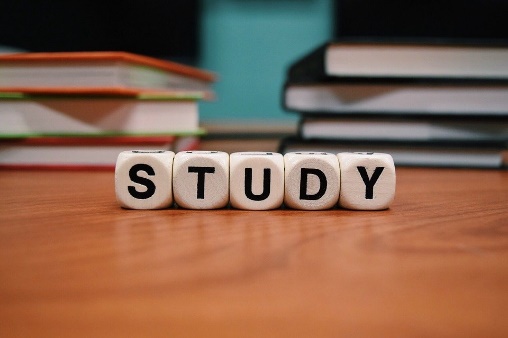
Intellectual Reading
It is an attempt to grasp the concepts, structure, and arguments that form the
content of the book or chapter or article or paper that is being read. The goal
is to learn something new, to master specific content, to develop one’s
intellectual categories, and to grow in one’s ability to think and comprehend.
There are a few tips for developing skill in this kind of reading and we will
discuss them briefly now.
1. Whole- part –whole approach: The mind works from the whole to the parts to the whole. When you begin to read a book, you should first try to get an overview of the main issues in the book. This means that you should begin with the book jacket (cover) and the introduction to get a clear idea about the book’s primary thesis and the main issues to be discussed. Next, you should spend some time studying the table of contents. Use a pen or pencil and note on the page any observations about the structure that you can see. If possible get a hold of one or two book reviews of the book and read before you begin to read it. At the end of this process you get a tentative picture of the book as a whole and you can now begin to read the parts.
2. Reading the parts/ chapters in the book: After the initial steps that we have discussed so far, you can begin to read the book (chapter by chapter) with a pen in your hand. Your goal now is to surface the structure of each chapter. This is important because once the parts of the book have been read, you should examine your tentative picture of the overall thesis and structure and revise if necessary.
While reading each chapter, write in the left-hand margin, every two or three paragraphs a summary of the main arguments in the text. What you are after is a chapter filled with marginal notes (summaries of the author’s arguments in your own words) that form an outline of the flow of that chapter. After reading a subsection in a chapter, return to the place where it begins and write a summary of the main point of the subsection. After finishing the entire chapter, look at all of the subsection summaries and write a summary of the entire chapter at the top of the first page of the chapter.

3. Notational Devices: You can use some notational devices to help you remember a chapter’s structure. You can put “+1,” “+2” or “A1,” “A2” or “P1,” “P2” etc., in the margin where each specific argument or point begins. You can note arguments against the author’s thesis that she might give with “-1,” “-2” or “CA1,” “CA2,” and so on. If the author offers counter arguments you can note them with “- -1,” “- -2” or “CCA1,” “CCA2” etc. The purpose is to keep track of the arguments and counter arguments or the major and minor points that compose the structure of the chapter or the whole book. Finally, if you write a marginal note that contains your own thoughts about an issue instead of representing a summary of the text itself, you can put the remark in parentheses and begin it with “N.B.”
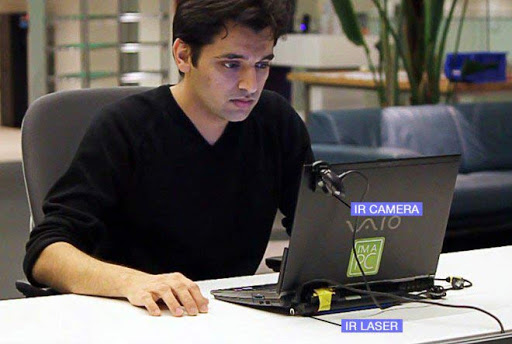
4. Your own index: The final tip is about constructing your own index inside the front cover of the book. If you come across a topic of special interest to you then turn to the blank pages at the front of the book and write down a key term or phrase, followed by the corresponding page number(s) in the text. If the same topic occurs in different places in the book, then add the additional page numbers. You can also use ‘index cards’ (3/5 or 5/11 cards) instead of writing in the book. This will help you to easily access things at a later time when you need. This is studying to store and use. Let us add two more points regarding intellectual reading that are vital.
First, the surest test of your understanding of the book or chapter or article that you have read is your ability to summarise the whole thing in your own words.

Second, another test of your understanding of what you have read is your ability to critically evaluate it. In other words, you can test your understanding of what you have read by asking yourself whether you can critique it. This is the ability to determine what you can agree with and what you cannot and the ability to give reasons for the same. We in India are not trained adequately in these two things (our education system is such that the emphasis generally is on adding more information and not on understanding or comprehending). Hence we should put in a lot of effort to develop our skills in these areas to be able to survive and succeed in the ‘global village’ where we are living now. Let us now conclude this section with three things that are important to remember in developing the art of intellectual reading.
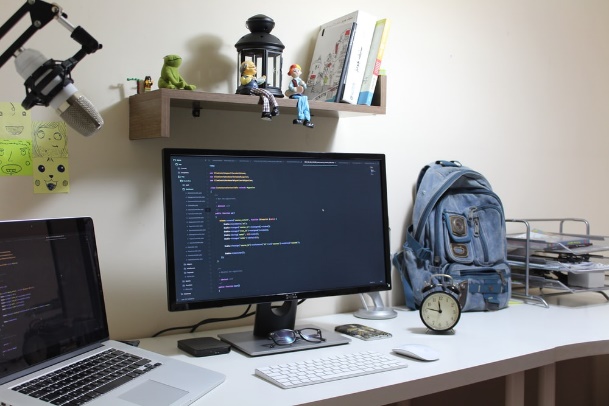
Three Important Things to be Remembered
First, do not measure the value of such reading by the immediate practical
application or spiritual enlivening (if you are reading some devotional books
or spiritual books). Moreland says that intellectual reading is never a quick
fix and that its value is measured in the long- term maturity that comes form
practicing this type of reading. Second, get into the habit of reading books
that are somewhat beyond your ability to grasp (especially during the holidays
or inter-semester breaks or the early stages of the semester/academic year).
This will help you to stretch your mind and to grow in your thinking ability.
Finally, when you undertake to read a book seriously, do not approach as you
would approach recreational reading (like when you read a novel). In
intellectual reading, you simply must stay alert, use a pen and probably a good
dictionary also, make notes regularly, and look for structure and flow of
thought /argument constantly. It would be great if you could form a book club
(if you are already a professional) or study group (for all, but mainly for
students) where you can help one another and also hold one another accountable.
Recently I came to know about one such (of course a big secular one) club in
Chennai. When my wife and I were studying in the US, one of the things we found
most useful was the different ‘study groups’ (with our classmates) that we were
a part of every semester. These study groups used to meet at regular intervals
to discuss, share insights, and to help one another and then we used to meet
once before the exams to give our preparation a finishing touch. Each one of us
was assigned a certain portion that we needed to study well and prepare notes
for every one else in the group. If we can do everything systematically, then
the study groups can be really helpful/useful. I think every serious student
should at least have a study partner, if not a study group. Let us now focus
briefly on another important aspect of reading in this age where speed has
become a part of every day life.

Speed Reading
If you want to learn more and keep growing, you have to read more. There is no
other go. But if we read at the normal speed at which we generally read, we
won’t be able to read much and consequently we won’t learn much in life and
most people ought to be able to read faster than they normally do. So in
concluding this section let us learn a little bit about the art of
speed-reading. In the West people generally know the value of speed-reading and
so there are speed-reading courses (both academic and commercial ones) that are
available for people to benefit from.
There are books and other stuff that we need to read fast and finish quickly.
There are also books that we need to read fast and take time to digest. There
might be different sections within the same book that need to be read at
different speeds. So a good speed reading course should equip us to read at
different speeds and not just one speed that is faster than anything you can
manage now. Such a course would enable you to vary the speed of reading in
accordance with the nature and complexity of the material being read. Adler and
Van Doren have this to say: “Many books are hardly worth even skimming; some
should be read quickly; and a few should be read at a rate, usually quite slow,
that allows for complete comprehension. It is wasteful to read a book slowly
that deserves only a fast reading; speed reading skills can help you solve that
problem.”
Lot of readers simply do not know what to do when reading a difficult and yet
rewarding book, because they do not know the rules of reading; they do not know
how to marshal their intellectual resources for the task. So we should learn to
read fast, learn to be able to read at different speeds, and should know when
the different speeds are appropriate. Inspectional reading is done quickly
where as analytical reading is generally much slower and even while doing an analytical
reading of a book, we should not read all of it at the same speed.
One of the fundamental problems that speed-reading helps us to overcome is
sub-vocalization (trying to say word after word to ourselves, of course without
saying loudly), which is learnt when people are first taught to read.
This slows down the rate of reading. It also helps us in overcoming some other
problems. We generally, like children or like when we were small, are limited
by the problem of ‘fixation’. Films of eye movements show that the eyes of
young or untrained readers ‘fixate’ (the directing and focusing the eyes on a
word or phrase) as many as five or six times in the course of each line that is
read. The eye is blind while it moves. It can see only when it stops. Our eyes
jump from word or phrase to phrase. Moreover, the eyes of incompetent readers
‘regress’ as often as once every two or three lines –that is, they return to
phrases or sentences previously read.
All these habits are wasteful and cut down our reading speed drastically. These
habits are wasteful because the mind, unlike the eyes, does not need to ‘read’
only a word or short phrase at a time. The mind, an amazingly complex and
astounding faculty, can grasp a sentence or even a paragraph at a ‘glance’, if
only the eyes will provide it with the information it needs. So the primary
task of speed-reading courses is to correct the fixations and regressions that
slow down many a reader and thus increase the rate at which the eyes move from
word to word or sentence to sentence.
There are many very complicated and expensive devices for breaking the eye
fixations. But we need not necessarily employ any device more sophisticated
than our own hand, which we can train ourselves to follow as it moves more and
more quickly across and down the page. We can use a finger or a combination of
fingers as a ‘pointer’ and move this across the page we are reading a little
faster than it is comfortable for our eyes to move. We should force ourselves
to keep up with our hand. Then we will very soon be able to read the words as
we follow our hand much faster. When we keep practicing this and keep
increasing the speed at which our hand moves, before we realize it we will have
doubled or trebled our reading speed.
The hand or some other devices like a pencil or small stick used as a timer not
only increases our reading rate, but it also improves our concentration on what
we are reading. As long as we follow the pointer or timer it is harder to fall
sleep, to daydream, to let our minds wander. ‘Concentration’ is just another
name for ‘activity in reading’. Any good reader reads actively, with
concentration. We will now take a look at some more tips that will help in
increasing our concentration and also at some effective study methods.

Tips to Increase Concentration in Study and Some Effective Study Methods
A few other things that can help us to concentrate better and study
better are 1) having a place set apart for studying which is away from the
busiest part of the house, 2) having a regular routine of reading and studying,
3) having all things in the room like water, books, pencil, etc., accessible,
4) taking rest breaks, 5) revising, 6) over-learning, and 7) other
memory-increasing measures like involving as many senses/activities as possible
in the process of studying/learning. We will now unpack each one of these a
little bit:

1. Having a Place to Study: Without shutting out all possible distractions (both internal or mental and external or physical) it is very difficult to have the desired level of concentration and without concentration the time spent in study will not yield adequate results. One thing that helps is having a special place – a room if possible or at least a study table and a comfortable chair (the way one sits also is important). When we go to the place we are better prepared to study even psychologically. But the main thing here is being away from physical distractions as much as possible. When we start studying there might be mental distractions as well. Whatever it is that is distracting has to be written on a piece of paper (if it relates to something that needs to be done) or pushed out of our minds by an act of the will. Sometimes we might even have to pray for God’s help.

2. Having a Regular Routine of Study: We also need to have set times for study. We might have daily, weekly, monthly, or even yearly study plans. But the key is to have study as a habit and we should cultivate this habit. It is said that the best way to learn to do something is to do it and to do it regularly or repeatedly. If we work hard for 21 days we can succeed in forming a habit. We need not be legalistic or too rigid. But we must have a regular routine of study and stick to it as much as possible and that will help us to learn the art better as time passes by and thus we will become more productive. Some of us are naturally early morning persons and others are late night persons. We have to study ourselves and see when (what part of the day) we are most alert mentally and plan our study time accordingly.
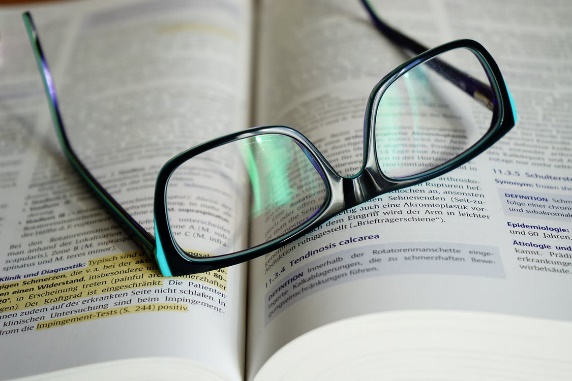
3. Having all the Required Items in Place: Another simple thing that helps us to minimize distractions and maximize concentration is having all items that we need to engage in a season of study. We might need some water, a mosquito repellent (if the mosquitoes are troubling you in your area or house), some tea if it is late night or if you are feeling a little dull, all the study materials – books, papers, pen, pencil, index cards, etc. Some times a small thing that is missing causes us to waste a lot of time and distracts us very badly.

4. Taking Rest Breaks: Many of us do not know that our
minds work best only for shorter periods of time. Research has confirmed that
those that take rest breaks at regular intervals end up learning more in a
given amount of time than those who do not take breaks. Generally after every
40 to 50 minutes we should take a short, maybe a five or ten-minute break and
just take a walk, look at something beautiful, splash some water on your face,
go to bath room, or go out and take in some fresh air and this helps the mind
to stay at a high level of efficiency. Otherwise, as time passes by the mind
becomes less and less receptive and efficient and we will end up wasting a lot
of time.
After a certain period of continuous study the mind just becomes dull and less
efficient and what you learn would be very minimal. Physical health or soundness
is a key factor that contributes to the process of learning, because the mind
and body are closely connected. It is observed that a person who is physically
active and fit is intellectually more productive. So do not neglect the body,
which is the temple of the Holy Spirit who indwells all believers.

5. Revision for Increased Retention: Research
shows that most people forget over 85% of what they read in just 48 hours, if
they do not revise. So it is critical that those who are serious about their
studies and learning cultivate the habit of systematically reviewing what has
already been read or studied. Revision reinforces concepts or ideas in our
minds and thus helps us in retaining more of what we learn and note making
while reading helps a lot in this process. Revision also helps us in developing
the ability to recall that is crucial in doing well in the objective type
exams, because the more we expose ourselves to the material the more it stays
with us over longer periods of time.
This is true even in the spiritual realm. Peter writes to Christians that he
recognized the need for him to remind them and to refresh their memory so that
they might remember certain fundamental truths (see 2 Pet. 1: 12-15 and 3: 1).
In a sense revision or reviewing is just going over the same material another
time or few more times after some time gap to ensure that important things are
remembered or retained.

6. Over-learning for Long Term Memory: Certain things
need to be memorized whether you like it or not and over-learning is absolutely
unavoidable in the process of learning. But what is over-learning? It is the
process of reading some material and analysing the contents a few more times
even when we feel (or even know) that we have learnt it and it must be done
because when you feel you have learnt something you have only got a short-term
memory of it and what we need in the long run is long-term memory, memory that
lasts longer. There are certain kinds of things in every subject that those who
study those subjects need to memorize.
If you are a student of history, you need to remember certain names, years,
dates, events, etc., if you are a student of science, you need to remember
certain definitions, equations, concepts, facts, etc., accurately, for example.
Neurophisiological search shows that the brain remembers the things that it is
exposed to more. Memory is still in many ways mysterious. But we know that in
the brain ‘memory tracks’ are formed when the brain is exposed to the same
content over and over again. It is like walking in the fields where not many
have walked before. The more you walk the same route, the more quickly a
recognizable path or track is formed.
What over-learning does in the process of memory is analogical to this and so
we have to exercise ourselves in this, because even in our spiritual life this
is vital – when we memorize the Scripture by repeatedly reading the same
portions, they stay with us and we can meditate on such portions. There are a
few other things that help and we will look at them, but revision and
over-learning are among the most important activities that help us to increase
our rate of retention and help us in improving long-term memory.
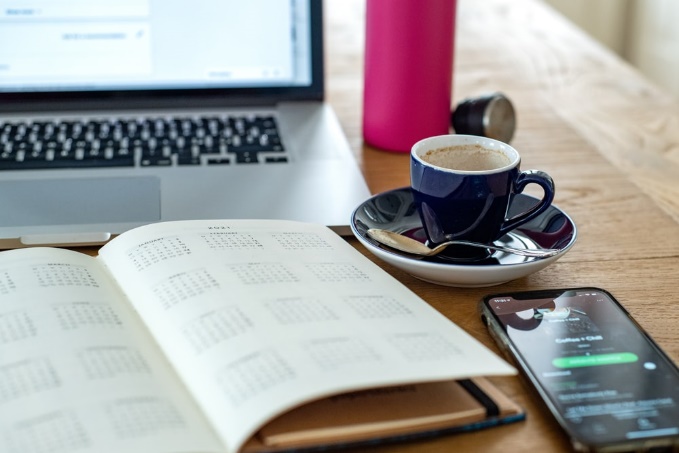
7. Involving as many Senses or Activities as possible in the
Process of Learning/Studying: We will now briefly consider just a
few more tips and techniques. The truth that forms the basis for these tips is
that the more the number of senses and activities that are involved in the
process of learning the more we learn and the more we retain what we learn.
Hearing what we read or writing what we read or carrying out an experiment that
we have theoretically read about or speaking on something that we have read or
learnt etc., are illustrative of what we are discussing. The things that I try
to teach others or explain to others are the things that I seem to understand
more clearly and remember longer. So group discussions are vital and cannot be
overemphasized. So also developing acronyms, writing things down in outline
form, and connecting things (forming connective memory) in our minds are very
helpful.
As a student of Zoology I found that I was able to remember certain things by
developing acronyms. For example, I formed the acronym CUP (formed with the
first letter of each term) to remember the sequence of the different parts of
the anal canal of the digestive system – Coprodeum, Urodeum, and Proctodeum.
Before I formed this acronym there was always confusion in my mind about the
proper sequence. Let me share just another example. The three small bones in
the ear and their order was also a matter of confusion for me and this was
solved with the acronym MIS from the first letter of each one – Malleus, Incus,
and Stepes and stepes is the smallest bone in the human body. Although I
stopped teaching zoology about 12 years ago, I still remember these, because of
the acronyms.
We are made (wired) differently and are of different personality types and
accordingly we like different things and ways of doing things, we have
different learning styles, different strengths and weaknesses, remember
different kinds of things more easily, like different kinds of subjects, and so
on. Unless we know ourselves we cannot develop effective study methods, get
into the right kinds of careers, and succeed. It is not easy to know ourselves
and we need help, which is available for students and others in the US and
other well developed nations freely, but unfortunately not available to us in
India.
Things are changing for better and at least some of the psychological tests with
scientifically developed questionnaires are now available. Our parents,
teachers, and good friends can also be of great help here. But the point is,
try to know yourself (as God has made you) as much as possible and take
advantage of this knowledge.
Our minds establish connections between and among things quite naturally and
when we do this more consciously we will be able to increase our memory of
certain facts, events, people, etc. Our son Shamuel connected a person, a
place, and his experience of eating a vegetable when he was just two and a half
years old. He remembers Bro. Yesaiah as the uncle who gave him drum stick
(mulakkaya) in Nambur and he still remembers him.
I remember the year of death of two eminent people, C. S. Lewis and the US
President J. F. Kennedy as 1963 by connecting it with my year of birth 1961. As
a student of Zoology and then a Lecturer also I remembered many things more
easily just by connecting things and this kind of memory is called ‘connective
memory’, which makes it easy for us to remember things.
Experts say that writing something one time is equal to or more than reading it
ten times. This is true because when we write we not only see something for a
longer time, but also think about it and our hands are also involved. When we
listen to a lecture we remember some. But if we listen to the lecture and take
some notes down, we remember some more. And when we take another look at the
notes after some time, we remember a lot more. When we present the contents to
others or discuss with them, then there is greater clarity about the concepts
and they get fixed in our minds more permanently. So involve more than one
sense or activity in the process of learning or studying and you will do
better.Conclusion
As the disciples of Jesus Christ, whether we are students or
graduates/professionals or preachers and teachers of the gospel/Word of God, we
all need to make study a regular part of our lives and this should be more so
if you are students or teachers/lecturers/professors – teaching either in a
secular college or in Christian ministry. The word ‘disciple’ has its biblical
roots in the Greek word mathetes, which basically means ‘a learner’.
Even if we take the meaning as ‘a follower’, it still means that we should
engage ourselves in the Discipline (Spiritual) of ‘study or learning’, because
our Lord Jesus Christ whom we follow learnt and grew in his understanding and
wisdom. In fact, Jesus is the smartest man that has ever lived in this world
and walked on the face of the earth and as his followers we should also learn
continually (learning is a womb to tomb process) and grow in our understanding
and wisdom and be smart (in the right sense) like Him.
Some one said that reading makes a man or woman perfect. So let us form the
habit of reading and read for spiritual growth and the purpose of learning. The
more widely-read we are the more informed and knowledgeable we become and the
more systematic we are in our study habits the more insightful and deep we
become as persons. This certainly is one of the keys to success in our times
and may the Lord help more and more Christians to excel and succeed in their
lives and careers.
Let me make just another comment in conclusion. The Bible says that
whatever we do we should do to the best of our ability and as unto the Lord
(Col. 3: 23; 1 Cor. 10: 31). So even if it is studying, if we do it as unto the
Lord, keeping God’s purposes and plans and His glory in mind, I think we will
have higher levels of motivation to excel in studies and in our careers
ultimately and we can be more effective witnesses for the Lord. We will, in
this way, be role-models for others to imitate and learn.

Leave a Comment: